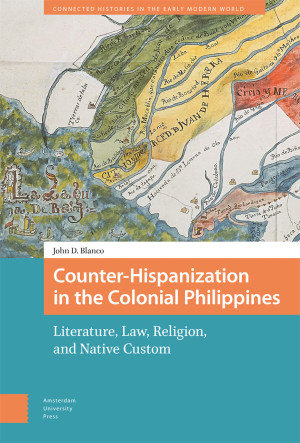In Counter-Hispanization in the Colonial Philippines, the author analyzes the literature and politics of “spiritual conquest” in order to demonstrate how it reflected the contribution of religious ministers to a protracted period of social anomie throughout the mission provinces between the 16th-18th centuries. By tracking the prose of spiritual conquest with the history of the mission in official documents, religious correspondence, and public controversies, the author shows how, contrary to the general consensus in Philippine historiography, the literature and pastoral politics of spiritual conquest reinforced the frontier character of the religious provinces outside Manila in the Americas as well as the Philippines, by supplanting the (absence of) law in the name of supplementing or completing it. This frontier character accounts for the modern reinvention of native custom as well as the birth of literature and theater in the Tagalog vernacular.

